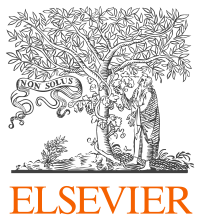Domain sci-hub.io is blocked, but the site is available under other names
 The site for free access to the scientific literature Sci-Hub is under judicial pressure from one of the largest publishers of scientific literature Elsevier. During the struggle, the site lost one of its domain names, sci-hub.io . But the owners are not going to lay down their arms, and have already registered several new names.
The site for free access to the scientific literature Sci-Hub is under judicial pressure from one of the largest publishers of scientific literature Elsevier. During the struggle, the site lost one of its domain names, sci-hub.io . But the owners are not going to lay down their arms, and have already registered several new names. The lawsuit against Sci-Hub and several similar sites was filed by Elsevier last year. The publisher was able to obtain a preliminary court decision ordering the site owners to stop providing unauthorized access to materials belonging to the publisher. But this, of course, did not happen.
True, the decision allowed the publisher to attack domain registrars with demands for deregistration. A few months ago, the sci-hub.org domain fell victim to these requirements, and a couple of days ago it was followed by the sci-hub.io domain, issued by the Chinese registrar Now.cn.
But Alexandra Elbakyan, the founder and owner of the site, caught up in time and corrected the situation. Now the site has spare domains Sci-Hub.bz and Sci-Hub.cc, and also amateurs to read scientific papers for the night can access the site directly through its IP 31.184.194.81, or even through the onion-address of the hidden Tor network service, scihub22266oqcxt.onion , which in principle will be difficult to close in any case.
Sci-Hub provides free accessfor everyone to scientific articles, for which you usually have to pay. For access to an article in a scientific journal, publishers usually ask about $ 30, or require serious money for an annual subscription.
Publishers of scientific journals in the amount earned $ 10 billion over the past year , mainly due to scientific libraries, which pay an annual subscription cost from $ 2,000 to $ 35,000 for each individual journal. The biggest publishers like Elsevier, Taylor & Francis, Springer and Wiley usually work with a margin of more than 30%. They consider such a margin justified because they call themselves curators of scientific works, choosing only the most worthy articles for publication, and also supervise the checking, editing and storage of articles.
